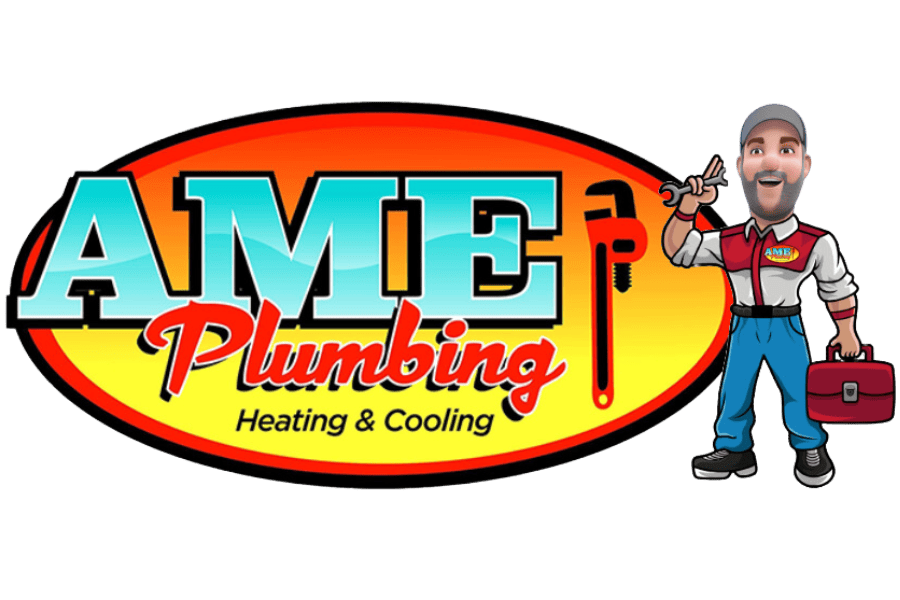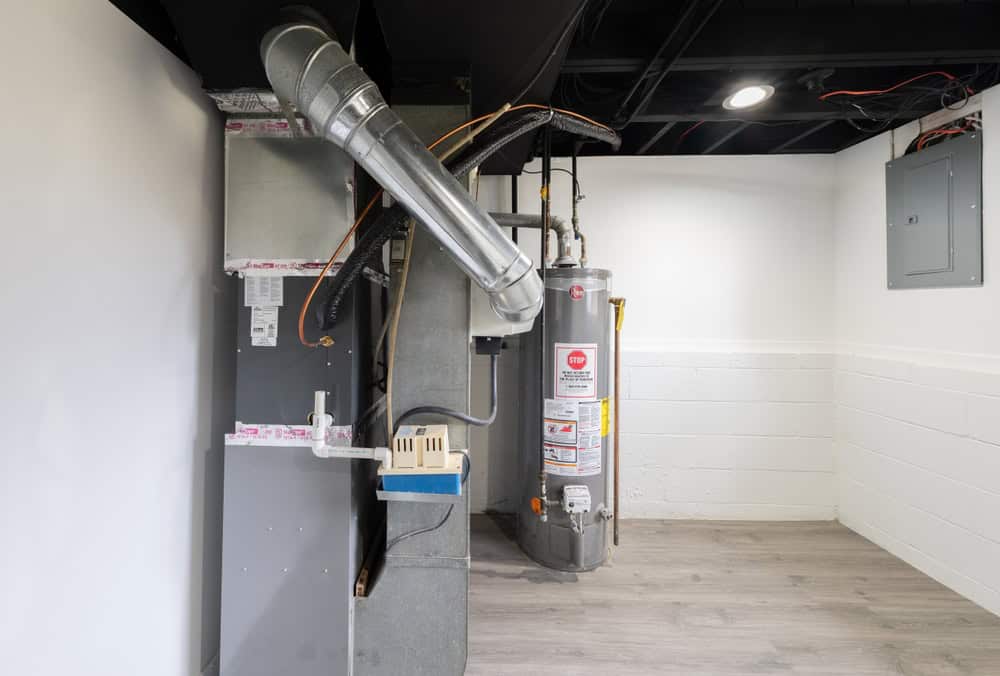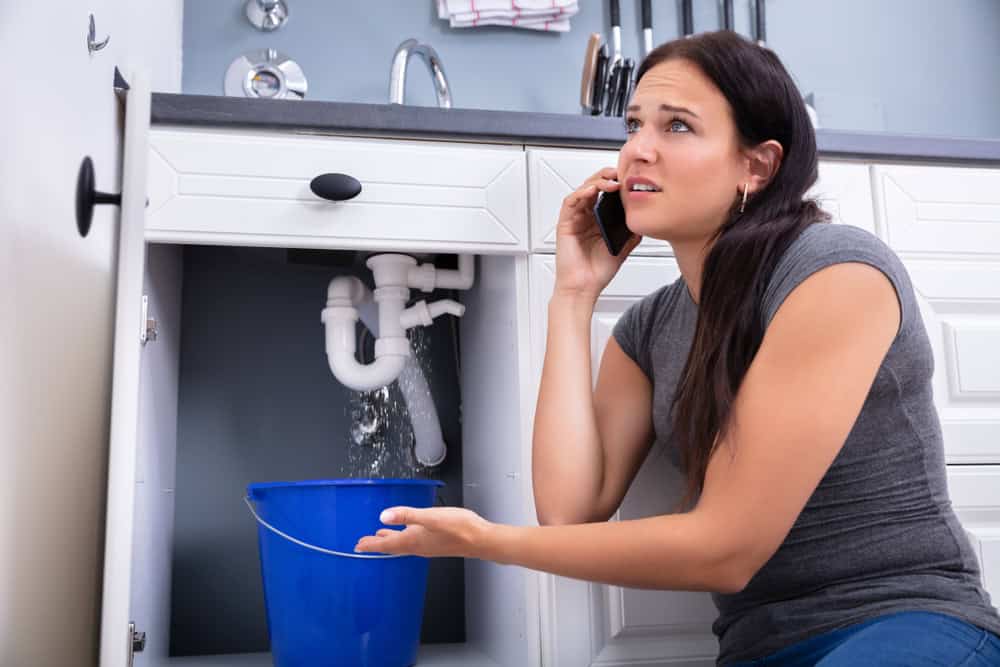Summary:
Sediment Buildup: The Silent Efficiency Killer
Sediment buildup ranks as the number one enemy of water heaters across Monmouth County. Over time, minerals from your water supply—primarily calcium and magnesium—settle at the bottom of your tank like unwanted houseguests who refuse to leave.
This accumulation doesn’t just sit there quietly. It creates a barrier between your heating element and the water, forcing your system to work harder and longer to reach the same temperature. You’ll notice your energy bills creeping up while your hot water supply seems to shrink.
The rumbling, popping, or crackling sounds coming from your water heater? That’s sediment buildup talking. As water tries to heat through this mineral layer, it creates steam bubbles that make noise as they escape. This isn’t just annoying—it’s a warning that your water heater is struggling and may fail prematurely without professional intervention.
How Hard Water Makes Sediment Problems Worse
Monmouth County’s water supply contains naturally occurring minerals that make sediment buildup particularly problematic for local homeowners. Hard water, rich in calcium and magnesium, accelerates this process significantly compared to areas with softer water.
When hard water heats up, these minerals precipitate out and form scale deposits throughout your water heater tank. Think of it like the white buildup you see on your showerhead, but happening inside your water heater where you can’t see it. This scaling doesn’t just reduce efficiency—it can actually damage internal components.
The heating elements in electric water heaters are especially vulnerable. Scale buildup acts like insulation around these elements, causing them to overheat and burn out prematurely. In gas water heaters, sediment accumulation at the bottom of the tank creates hot spots that can weaken the tank itself.
You might notice your hot water has a metallic taste or appears slightly cloudy. These are early warning signs that mineral deposits are affecting your water quality. Some homeowners also report that their hot water doesn’t feel as hot as it used to, even when the thermostat setting hasn’t changed.
Regular professional maintenance, including tank flushing, becomes even more critical in areas with hard water. We can assess your specific situation and recommend solutions that address both the immediate sediment problem and the underlying water quality issues contributing to faster buildup.
Warning Signs Your Water Heater Needs Professional Attention
Recognizing the early signs of sediment-related problems can save you from complete water heater failure and expensive emergency repairs. Your water heater will usually give you several warnings before it stops working entirely.
Strange noises are often the first indication something’s wrong. That rumbling, popping, or banging sound isn’t your water heater trying to communicate—it’s steam bubbles forming and collapsing as they try to escape through layers of sediment. These sounds typically get louder over time as the buildup increases.
Water temperature inconsistencies signal another red flag. If you’re running out of hot water faster than usual, or if the water temperature fluctuates during use, sediment may be interfering with your heating elements’ ability to function properly. You might also notice that it takes longer for hot water to reach your faucets.
Discolored water, particularly rusty or brown-tinted hot water, often indicates that sediment buildup has progressed to the point where it’s affecting your tank’s internal components. This discoloration might appear intermittently at first, especially when you haven’t used hot water for several hours.
Higher energy bills without increased usage patterns suggest your water heater is working harder to maintain temperature. When sediment forces your system to run longer heating cycles, you’ll see the impact on your monthly utility costs. Some homeowners notice their electric or gas bills increase by 20-30% when sediment buildup becomes severe.
Physical inspection can reveal external signs of internal problems. Check around the base of your water heater for any moisture or mineral deposits. Small leaks often start where sediment has caused internal corrosion, and catching these early can prevent major water damage to your home.
Heating Element and Thermostat Failures
When your water heater produces no hot water or inconsistent temperatures, heating element or thermostat problems are likely culprits. These components work together to maintain your desired water temperature, and when one fails, your entire hot water supply suffers.
Electric water heaters typically have two heating elements—one near the top and one near the bottom of the tank. Gas water heaters rely on burner assemblies controlled by thermostats. Both systems depend on precise temperature monitoring to function efficiently.
Failed heating elements don’t always mean complete cold water. Sometimes you’ll get lukewarm water that never reaches full temperature, or hot water that runs out much faster than normal. These partial failures can be particularly frustrating because they’re not dramatic enough to demand immediate attention, yet they significantly impact your daily comfort and energy costs.
Electric Water Heater Element Problems
Electric water heaters face unique challenges in Monmouth County’s variable climate. Power fluctuations during storms, high humidity levels, and the constant cycling required to maintain temperature through seasonal changes can stress heating elements beyond their normal lifespan.
Upper heating elements typically fail first because they work harder during initial heating cycles. When the upper element burns out, you might get some hot water from the lower element, but it won’t be enough for normal household needs. The lower element handles the bulk water heating, so its failure usually means no hot water at all.
Mineral deposits from hard water accelerate element failure by creating hot spots and reducing heat transfer efficiency. Scale buildup forces elements to work at higher temperatures, leading to premature burnout. You might notice a decline in performance weeks or months before complete failure occurs.
Thermostat problems can mimic heating element failures, making professional diagnosis essential. A faulty thermostat might not signal the heating elements to turn on, or it might keep them running continuously. Both scenarios waste energy and can damage other components.
Circuit breaker issues sometimes masquerade as water heater problems. If your electric water heater suddenly stops working, check your electrical panel first. Tripped breakers are often easy fixes, but frequent tripping indicates underlying electrical problems that require professional attention.
Professional repair becomes necessary when heating elements fail because replacement involves electrical connections and safety considerations. We have the tools and expertise to test components accurately, ensure proper installation, and verify that your electrical system can safely support the water heater’s requirements.
Gas Water Heater Burner and Control Issues
Gas water heaters in Monmouth County face different but equally challenging problems. Pilot light issues, burner assembly malfunctions, and gas control valve failures can leave you without hot water and potentially create safety hazards.
Pilot light problems are among the most common gas water heater issues. Strong winds, drafts, or dirty burner assemblies can extinguish pilot lights, shutting down your entire hot water system. While relighting a pilot light might seem straightforward, repeated outages often indicate underlying ventilation or gas pressure problems that require professional diagnosis.
Burner assembly issues develop gradually. You might notice that your water heater takes longer to heat water, or that the flame appears yellow instead of blue. These symptoms suggest incomplete combustion, which reduces efficiency and can produce dangerous carbon monoxide. Never ignore changes in flame color or unusual odors around your gas water heater.
Gas control valve failures can be particularly dangerous because they affect the safety systems designed to prevent gas leaks. These valves regulate gas flow to the burner and include safety shutoffs that activate if problems are detected. When control valves malfunction, they might fail to shut off gas properly or prevent the system from igniting at all.
Venting problems unique to coastal areas like Monmouth County can affect gas water heater performance. Salt air, high humidity, and seasonal weather changes can corrode vent pipes or create blockages that prevent proper exhaust ventilation. Poor venting not only reduces efficiency but can allow dangerous gases to accumulate in your home.
Professional service becomes critical with gas water heaters because of safety concerns. We have the training and equipment to safely diagnose gas system problems, test for leaks, and ensure proper ventilation. We can also identify when problems stem from your home’s gas supply system versus the water heater itself, helping you avoid unnecessary repairs or safety risks.
Getting Professional Water Heater Repair in Monmouth County
Recognizing water heater problems early and calling for professional repair can save you from emergency situations, water damage, and premature replacement costs. The key is understanding when DIY troubleshooting ends and professional expertise begins.
Most water heater issues require specialized knowledge, proper tools, and safety precautions that go beyond typical homeowner capabilities. Professional plumbers can accurately diagnose problems, source the correct replacement parts, and ensure repairs meet local codes and safety standards.
When you’re dealing with inconsistent hot water, strange noises, or rising energy bills, don’t wait for complete failure. Early intervention often means simpler, less expensive repairs. For reliable water heater repair services throughout Monmouth County, we provide the expertise and prompt response you need to restore your hot water system efficiently.





